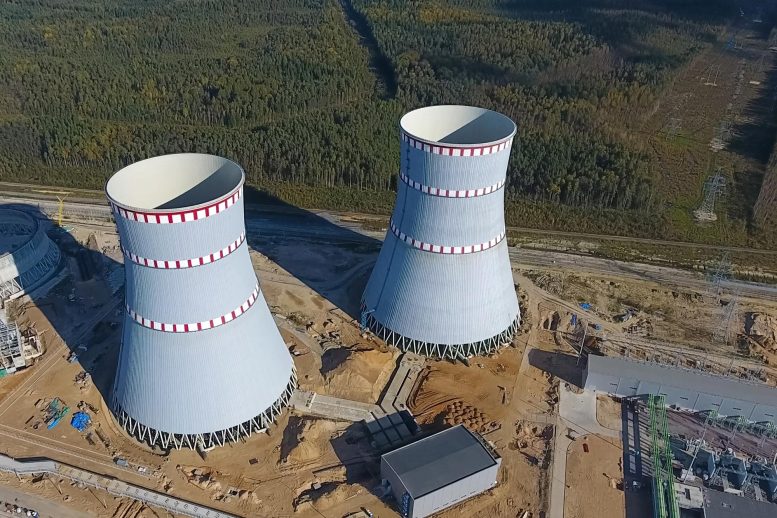The Urgent Need for Improved Energy Simulations
A recent study has revealed the inadequacies in the computer simulations used to shape energy policy, particularly highlighting their unreliable assumptions and lack of transparency. The study, assessing a pivotal 1980s model, underscores the need for more effective simulation methods like ‘sensitivity auditing’ to improve accuracy and decision-making. Dr. Samuele Lo Piano emphasizes the importance of acknowledging these limitations to enhance democratic debate and decision-making in energy policy.
The widespread adoption of nuclear power, which was anticipated more than four decades ago through computer simulations, contrasts sharply with the ongoing reliance on fossil fuels. This discrepancy highlights the need for enhancing these simulations, as a recent study suggests.
To evaluate the effectiveness of current energy policies, researchers revisited an influential model from the 1980s. This model had projected a substantial increase in nuclear power use. Energy policies, which shape the production and utilization of energy, have far-reaching effects on employment, expenses, climate, and security. These policies are developed using simulations or mathematical models that predict elements like electricity demand and technology costs. However, these forecasts can sometimes be significantly off the mark.
Findings and Recommendations for Improved Simulations
Results recently published in the journal Risk Analysis showed the team found simulations that inform energy policy had unreliable assumptions built into them and that they need more transparency about their limitations. To amend this, they recommend new ways to test simulations and be upfront about their uncertainties. This includes methods like ‘sensitivity auditing’, which evaluates model assumptions. The goal is to improve modeling and open up decision-making.
Lead researcher Dr Samuele Lo Piano, of the University of Reading, said: “Energy policy affects everybody, so it’s worrying when decisions rely on just a few models without questioning their limits. By questioning assumptions and exploring what we don’t know, we can get better decision making. We have to acknowledge that no model can perfectly predict the future. But by being upfront about model limitations, democratic debate on energy policy will improve.”
Reference: “Unpacking the modeling process for energy policy making” by Samuele Lo Piano, Máté János Lőrincz, Arnald Puy, Steve Pye, Andrea Saltelli, Stefán Thor Smith and Jeroen van der Sluijs, 14 November 2023, Risk Analysis.
DOI: 10.1111/risa.14248

A recent study has revealed the inadequacies in the computer simulations used to shape energy policy, particularly highlighting their unreliable assumptions and lack of transparency. The study, assessing a pivotal 1980s model, underscores the need for more effective simulation methods like ‘sensitivity auditing’ to improve accuracy and decision-making. Dr. Samuele Lo Piano emphasizes the importance of acknowledging these limitations to enhance democratic debate and decision-making in energy policy.
The widespread adoption of nuclear power, which was anticipated more than four decades ago through computer simulations, contrasts sharply with the ongoing reliance on fossil fuels. This discrepancy highlights the need for enhancing these simulations, as a recent study suggests.
To evaluate the effectiveness of current energy policies, researchers revisited an influential model from the 1980s. This model had projected a substantial increase in nuclear power use. Energy policies, which shape the production and utilization of energy, have far-reaching effects on employment, expenses, climate, and security. These policies are developed using simulations or mathematical models that predict elements like electricity demand and technology costs. However, these forecasts can sometimes be significantly off the mark.
Findings and Recommendations for Improved Simulations
Results recently published in the journal Risk Analysis showed the team found simulations that inform energy policy had unreliable assumptions built into them and that they need more transparency about their limitations. To amend this, they recommend new ways to test simulations and be upfront about their uncertainties. This includes methods like ‘sensitivity auditing’, which evaluates model assumptions. The goal is to improve modeling and open up decision-making.
Lead researcher Dr Samuele Lo Piano, of the University of Reading, said: “Energy policy affects everybody, so it’s worrying when decisions rely on just a few models without questioning their limits. By questioning assumptions and exploring what we don’t know, we can get better decision making. We have to acknowledge that no model can perfectly predict the future. But by being upfront about model limitations, democratic debate on energy policy will improve.”
Reference: “Unpacking the modeling process for energy policy making” by Samuele Lo Piano, Máté János Lőrincz, Arnald Puy, Steve Pye, Andrea Saltelli, Stefán Thor Smith and Jeroen van der Sluijs, 14 November 2023, Risk Analysis.
DOI: 10.1111/risa.14248
